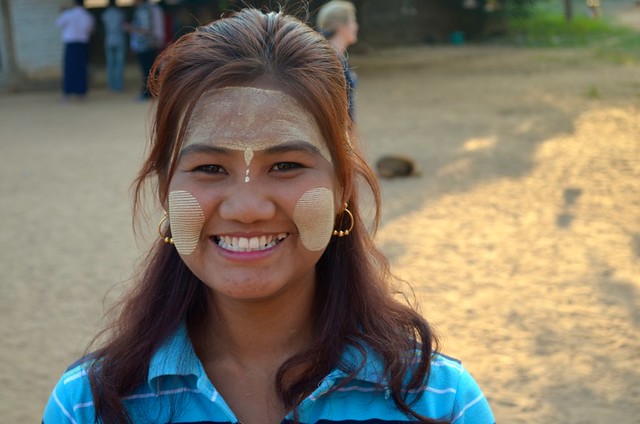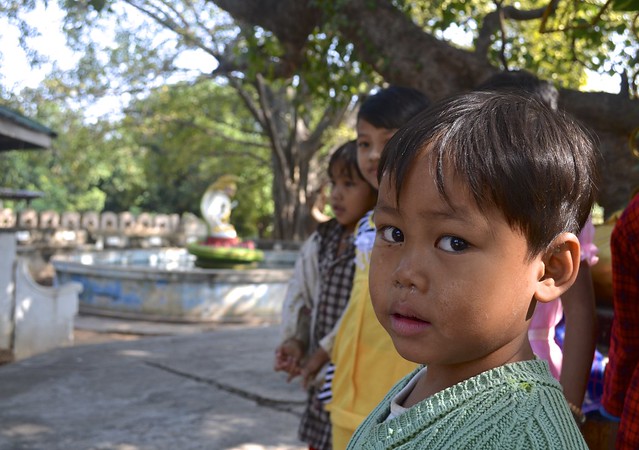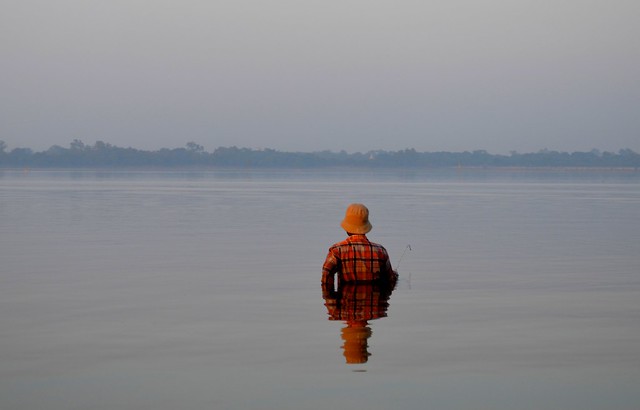#
Over the past four months, I’ve studied four new foreign languages. In November it was Vietnamese, in December it was Burmese, in January it was Thai, and for the past month of February and early March, I have been studying Korean.
Over these four months, I’ve learned a ton of vocabulary, interacted with people in new places and words, and discovered a lot new ideas about language in general, language learning and even myself through this process.
I suppose my only regret was that I never did this kind of personal experiment before.
Excluding Korean and Korea, which I haven’t gotten to yet, I started studying the language shortly before arriving for a 2-4 weeks “stay” in each of these countries. I got to travel to the place so my need and opportunity to use the language was high. As such, I also got a huge exposure to the native sounds of the language as well as a bunch of cultural interaction through the people, food and various situations I encountered as a traveler.
So, what have I learned about foreign language learning and myself?
To summarize, I learned:
- Fluency is not the only Goal, First Learn To Just Speak
- A Few Native Words Do Make a Difference
- Free Resources and Amazing Technologies, indeed, make the world your oyster for the language learner
- The Reward is in the Encounter: There is No Real Excuse Not to Learn before You Travel Somewhere New
Lesson 1: Fluency is not the only Goal, First Learn To Just Speak
While my experiences learning French and Chinese had taught me a lot about language study, I had a pretty limited perspective on the end goal of learning a foreign language. That is I tended to think the main goal of learning a foreign language was high-level mastery and fluency.
I had approach French and Chinese as long-term goals and had succeeded eventually with both, but this “total dominance” approach limited my learning forays into other tongues. This has held me back for years in attempting to learn additional languages as I’ve traveled the world.
I’ve spent weeks and months in new countries yet failed to learn more than a few tourist expressions. I regret this immensely.
When I approached learning Vietnamese earlier this year, I continued to think along this judgmental line of “Is it worthy becoming fluent in this language?” during my first few weeks there. Vietnamese is a very difficult language and since I failed to find “meaning” in fluency in Vietnamese my studies lingering as my trip’s end date neared. I regret this.
With Burmese, my goal and timeline changed. I knew I’d only be there for a few weeks maximum and only had a few weeks to prepare. These limitations were great since it let me frame my goal accordingly. I’d do the best I could with the time I had.
I didn’t need or want fluency; I wanted to just speak. I wanted to surprise people with some basic phrases and situational vocabulary. With the short deadline and a few tools and techniques, I became a “conversant tourist,” meaning I could express myself in a local language in various tourist situations.
While ultimately the goal might be to become fluent in a foreign language one day, I don’t think that’s the best requirement when deciding whether to start to learn a foreign language.
If there is an opportunity or reason you might use that language, then that’s a pretty good reason. If it’s a language or culture, you are truly interested in, that’s a reason too.
Whether you reach fluency or not, learning a foreign language requires you to reach different levels of proficiency throughout the progress. To become fluent, you need to come conversant, to be conversant you need to be able to initially just get by.

Lesson 2. A Few Native Words Do Make a Difference
As I said, lack of fluency or even the goal of fluency shouldn’t hold you back from starting to learn a new language. Nor should only knowing a few words in the language limited you in makes attempts to speak. As many language learner / blogger will say, speak from day 1.
Even if you don’t have a huge vocabulary or fluency, knowing a few native words when you travel changes your experience. Locals will appreciate you more and smile in different ways.
In my case, I’ve managed to learn between 50-500 words in several languages these past couple months, like Vietnamese, Korean, Thai and Burmese.
It’s hard to even count how many special moments I’ve had with the limited vocabularies I have in these new languages. It’s entirely possible to get by traveling in English and during the rare occasion gesturing to communicate.
Whether it was emphasizing “cold” in Vietnamese or confirm the price in Thai, these simple words make a difference. The more words you know the more things you can do with a language, but even a mere 50 words can get you through a surprising number of situations and, in my opinion, 200-400 words will get you through most tourist encounters.
Lesson 3. Free Resources and Amazing Technologies, indeed, make the world your oyster for the language learner
It amazes me how great it is to be a language learner in today’s internet, information age. Like most long-term language learners, I shun grammar early on and simply build up my vocabulary.
When I started French about 10 years ago, there were already quite a few resources to use online. For example, in our to improve my listening and vocabulary, I listened daily to a short audio clip of the news in French that also include a transcript. Initially I had to listen several times just to get the gist but eventually I got there.
Today it seems like there is nearly a new blog or podcast or app coming out daily for the motivated language learner. There is no limit to how many free websites of vocabulary, language lessons, books, learning techniques, and apps exist today.
In fact, it’s completely possible today to learn a foreign language without spending any money at all, as I have been doing with Burmese, Thai and Korean.
From some languages it’s obviously easier to find great resources (Korean, for example), but I have yet to attempt a language where the internet didn’t offer me something to get started to learn. I was amazed to find a completely free, shared Burmese course with Audio when I started that language. The free resources actually seemed better than the paid ones!
In some ways, the language learning space is now flooded with books, sites and apps that it’s not always easy to find what works best for you. For me, I try to take some time early in my “meta” language orientation period to find 1-2 resources that I find work well for how I like to learn. Eventually you may want to use a more systematic course or book, but early one, just go with what feels right and gives you exposure to the sounds and pronunciation as well as encourages you to learn vocabulary.
Generally I start with the best audio focused lessons I can find, then progressive built up basic situation vocabulary and common speaking structures. This gives me the ability to understand natives, express useful words and remix that vocabulary using common speaking structures.
For vocabulary acquisition, it’s important to use flashcards and various technologies help you to review periodically. Personally I use Memrise a lot to build up my vocabulary. If a course doesn’t exist for the materials I’m using to study, then I do my best to create it. (Check out my profile for courses on Burmese and Korean.)
As a self-learner, the world is, indeed, your oyster when it comes to free resources and various technologies to use to learn with. Embrace the Net, find what fits your learning style, and stick to a learning schedule until you reach your goal.

Burmese Children, near Mandalay (Personal Photo, Source)
Lesson 4. The Reward is in the Encounter: There is No Real Excuse Not to Learn before You Travel Somewhere New
Over the last four months, I’ve stopped caring about fluency and embraced the fact that knowing even 20-30 native worlds in a place you improves my travel experience. Certain technologies and resources have made me a better and more productive learner too.
But one of the most important lessons I’ve learned is that there is no real excuse not to learn some of a language before you travel somewhere new or while you are there.
There a lot of great language learners and bloggers that quite effectively show that there are no excuses why you can’t learn a foreign language. In fact, I know I’m over most of the common excuses since I know I can learn a foreign language.
Unfortunately I still came up with reasons and excuses why I shouldn’t learn a new language before traveling there. My main crutch was the “conclusion” that learning some initial vocabulary wasn’t worth it if I was only going to be there for a short period.
Personally, I spent several years in China and mostly focused my travels on China for two reasons: 1. I wanted to focus more on Chinese and 2. I was afraid / didn’t want to travel to places I didn’t speak the language. While for my Chinese, this kind of focus was great, but it also meant I missed opportunities to learn and travel to other places.
This excuse about “not being worth it” also meant I missed several chances during my travels this past year or so (for example, Arabic in Morocco or Greek in Greece, Turkish in Istanbul, etc.). I now recognize the experiential change you get from knowing a mere 200-400 words when you travel somewhere new and I regret these missed opportunities.
As I said, lack of fluency or even the goal of fluency shouldn’t hold you back from starting to learn a new language. In the same way, there should be no excuse for not learning a few words (or even better more than a few words!).
When I have the chance to travel and live somewhere new, I know embrace it a “bootcamp” to learn what I can in the time I have to prepare.
I’m fortunate that my current life and work allows me the opportunity to work remotely anywhere, but there is no obvious requirement to learn a foreign language in order to travel like I do. Most of the world is travel-able on English alone. The fact that I choose to learn foreign languages comes from a personal passion, a passion to interact with people around me in their native tongue.
Over these past four months and four languages, I’ve discovered that there are plenty of excuses to not learn a new language, but in the end, the reward is in the encounters, meeting interesting people, sharing special connections and understanding history, language and people in a way that can only be heard in a native tongue.

